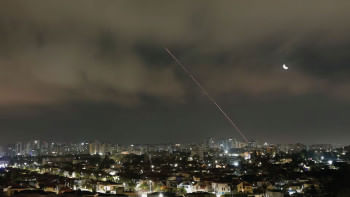Obama's Libya admission and the clockwork world
Less than five years after the Libyan strongman Muammar Gaddafi was ousted from power, US president Barack Obama has made a frank admission. He told Fox News on April 10 that the intervention in Libya was the worst mistake of his presidency. He also insisted that the intervention was the right thing to do, but there wasn't enough planning once the dictator was toppled in 2011. The American president sounded like a confused doctor telling a deceased's family that his diagnosis was right, but the prognosis was wrong.
The doctor would have been sued for the very shirt off his back. But Obama being Obama is enjoying the glory of God, his bolder side rising in the sunset of his presidency. If he had only asked, any of the many smart alecks from our villages would have offered this advice: Don't start something you can't finish.
For Libya though it hasn't been as simple as that. The blunder Obama described in a few words has left Libyans stewing in their own juice. Their lives are shattered, the economy is in tatters, and politics looks explosive like a spark thrown into a gunpowder keg.
Throw in the Iraq fiasco, a crowning example of how the American paranoia wrecked a foreign country for nothing. Afghanistan is another example of brinksmanship when a selfish and arrogant superpower pushed a country to the brink. Syria is an ongoing tragedy; its miseries drag on while the Americans sit on the fence.
History works like clockwork. The mainspring unwinds, and its energy turns gears which cause the hands to move. Likewise, ideas spark actions that unleash events releasing energy leading to confrontations culminating in consequences. In that process, every country arrives at the end of its own flawed political system that can be called its breaking point. And each of these systems breaks under its own pressure, their cumulative effect radiating into the global system to bring about a pervasive and universal change.
More often than not, a breaking point sets off changes that lead to a turning point. And that spectrum of change often starts with an individual, which may be why Obama has eventually admitted his mistake. An individual breaking point is occasionally violent and unfortunate. Saddam Hussein of Iraq was a broken man at the end of a hangman's rope. Gaddafi was stabbed, beaten, stripped and shot, the one-time big daddy hunted down like a pesky rodent.
Thus, if an individual doesn't know his own limit, history sets it for him. Again, history isn't ready to change until an individual is willing to take charge of events. Messiahs have changed the world, conquerors have reconfigured maps, revolutionaries have remodeled countries and inventors have revised the way we lived. At the same time, the Big Bang, earthquakes, floods, asteroid impacts, plagues and pestilences have shaped human destiny since the dawn of mankind.
Thus, breaking points in history are both manmade and natural. It could be that both complement each other in unfolding a design that's already there. It also could be that one leads to another or both jointly drive history like a carriage drawn by two horses.
A paper presented by Carmen M. Reinhart of Harvard University and Christoph Trebesch of the University of Munich in September 2015 argued that Greece defaulted four times in its modern history and each time it followed a period of increased dependence on external financing. It suggests that mistakes or failures have far-reaching consequences, compounding into a crisis if neglected too long. Bad decisions destroy a country just like bad habits ruin health!
Hence, a breaking point is the moment of greatest strain at which someone or something gives way. The British India split into two countries in 1947 under that same strain. Twenty four years later, Pakistan succumbed to it in 1971. The Soviet Union disintegrated in 1991, creating 15 splinter republics.
Nations often misread the early signs of that strain. They squander their wealth. They also waste opportunities that eventually cost them. Nigeria squandered its oil riches. The one-child policy has upset China's gender balance. Zero population growth in some countries threatens to create labour shortage and desolation.
Obama's confession reconfirms that today's lapses are tomorrow's regrets. But there's something more important that he hasn't said: It's wrong to poke your nose in another country's business. Maybe, by breaking other countries the United States is destined to head for its own breaking point.
Liberators and subjugators have a thin line between them. Freedom imposed on people or denied to them is comparable to flood and drought. Surplus at times hurts more than shortage.
Last week, Obama asked the young Brits to reject cynicism. But he surely didn't sound convincing to them. Because they wonder, like the rest of us, if the Iraqis, Afghanis, Libyans and Syrians are better off than before!
The writer is the editor of the weekly First News and an opinion writer for The Daily Star. Email: [email protected]

 For all latest news, follow The Daily Star's Google News channel.
For all latest news, follow The Daily Star's Google News channel. 



Comments